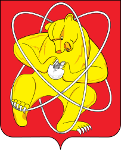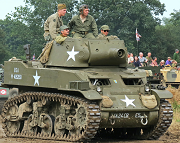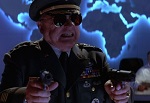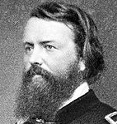|
EricD posted:Drill and ceremonial does teach certain basic or foundational military skills. For example: One of the most important skills in fieldcraft is to be able to stay still for long periods of time, because the human eye is drawn to movement and you are more easily concealed when you remain still. This might require you to remain still for long periods in uncomfortable positions. Drill teaches you the basic concept of that. Drill teaches you to follow commands, immediately and without question. Modern NATO militaries might value low level initiative and independence a lot, but we still require military obedience before we teach initiative. Drill teaches that obedience. Modern military maneuvers require a keen sense of timing and ability to perform movements and tasks in unison or coordination with other members of your section, squad, platoon, whatever. Drill movements require the different parts of the formation to work in unison, to be aware of each other, and to maintain strict timings and synchronization. The movement part is complete BS. It's all about discipline, and used to be the basis for maneuver. All the flashy stuff came later, because people realized it looked cool, which is probably the biggest reason it's done in training (parents LOVE a good Pass In Review!) besides it being a tedious chore that you can be yelled at for. Godholio fucked around with this message at 22:06 on Sep 5, 2016 |
|
|
|

|
| # ? May 11, 2024 10:20 |
|
 Edward Finne was a Finnish farmer's son with a peg leg, ironically trained to be a shoemaker. In the winter of 1915-16 he skied across the sea separating Russian empire and Sweden. From there he made it to Germany where he joined other Finnish volunteers being given Pfadfinder training. His impediment only came up in the drilling grounds when Finne was noticed to be clumsier than others.
|
|
|
|
Hm, what's this, a book by an alleged "internationally recognized expert on the Eastern Front"? Welp. Edit: he also based the entire thing on loving SS records and just shrugs and goes "there's no way to establish Soviet losses so let's just take the SS claims at face value".
|
|
|
|
A T34-152 would be a sight to behold.
|
|
|
|
Ensign Expendable posted:Hm, what's this, a book by an alleged "internationally recognized expert on the Eastern Front"? To be fair, Wehraboos know no borders, so technically speaking he could indeed be 'internationally recognized' as an expert. It's just he's only recognized by total morons.
|
|
|
|
Also minor point but I believe the soviet 152 fired an about 90lb shell, the American 155 was the one firing 100lb shells but it also had about double the range. And the D-1 152 howizter on it's gun carriage is actually slightly larger than the T34 so it would probably look even stupider than the Israeli Shermans. OwlFancier fucked around with this message at 23:32 on Sep 5, 2016 |
|
|
|
Fangz posted:A T34-152 would be a sight to behold. The turret is larger than the tank it's mounted on.
|
|
|
|
The tank actually moves by depressing the barrel down and then traversing the turret, it moves like a very slow land kayak.
|
|
|
|
A tank that moves by rocket-jumping and conducts bombardments by launching itself several hundred meters into the air and firing down at things as it falls.
|
|
|
|
I found a rare archive photograph! EDIT: Seems like the Egyptians were mad enough to make a T34-122 though. http://www.primeportal.net/tanks/tim_roberts/t-34_122_egypt/ 
Fangz fucked around with this message at 23:51 on Sep 5, 2016 |
|
|
|
OwlFancier posted:The tank actually moves by depressing the barrel down and then traversing the turret, it moves like a very slow land kayak. I laughed entirely too hard at this.
|
|
|
|
Nebakenezzer posted:So just outta curiosity, what marks all the aviators as toffs? The Golf playing and the fact the Lt. Col. doesn't look down on them? "Duh, all the RFC pilots were toffs?" In 1914 there were about 250 officers out of 12,738 serving in the Army (including the RFC) who had been promoted from the ranks, and the social background of the Army's officers is monocultural enough to safely assume that all the rest were educated at public school and then either a university or Sandhurst or both, absent evidence to the contrary. On top of that, of the 250, one of them was Wully Robertson, and all but one or two of the rest were quartermaster-sergeants and other such logistics-wallahs who got their commission for being incredibly good at logistics and worked strictly as supervisors of Moving poo poo Around. 30 Squadron RFC was formed shortly after the war began and only intermittently provided with reinforcement drafts; aside from the occasional grammar-school oddity like Hereward de Havilland, who was commissioned on the strength of his credentials as a test pilot, it is incredibly statistically unlikely for any of these other officers to have been anything other than gentlemen with an interest in flying who'd come through the public school conveyor belt.
|
|
|
|
Fangz posted:I found a rare archive photograph! 
|
|
|
|
If you want a fun wiki hole to disappear into, a very oddly detailed list to pore over, I just found a real humdinger of an article: List of accidents and incidents involving military aircraft (1940–44)
|
|
|
|
what the heck
|
|
|
|
Being a test pilot was an incredibly dangerous job.
|
|
|
|
quote:20 July Buzzing your childhood home: not a good idea.
|
|
|
|
That seems more like "crashing into" than "buzzing" honestly. Crashing into things: not a good idea.
|
|
|
|
Shaving in your bathroom in the morning: not a good idea.
|
|
|
|
ponzicar posted:Buzzing your childhood home: not a good idea. Honestly that sounds like a decision you'd make while high on amphetamines.
|
|
|
|
cheerfullydrab posted:If you want a fun wiki hole to disappear into, a very oddly detailed list to pore over, I just found a real humdinger of an article: I bet you anything that 99% of that will be the work of one guy who hasn't been outside since Concorde stopped flying. Nebakenezzer posted:So just outta curiosity, what marks all the aviators as toffs? The Golf playing and the fact the Lt. Col. doesn't look down on them? "Duh, all the RFC pilots were toffs?" Apart from the above mentioned, there are plenty of tells in the text itself. English miners of the time weren't known for their habit of retiring to the bar for a few cocktails, mess president is kind of like being the president of the (mandatory) social club (Think more mess dress and less the tent where the enlisted blokes receive their slop), the average private or factory worker would be conditioned to be a bit more circumspect about writing off bleeding edge technology as if it were mummy's Mercedes. The Indian army at this time is a whole other weird social construct because the officer corps is mostly white and British, as far as I was able to make out it's where you put the real wastrel toffs and upper middle class guys who lost their way.
|
|
|
|
What were different ancient armies' stances on using enemy equipment? I realize they wouldn't just throw them away, but considering how standardized everything was (All of you go together because you all have the same sword/spear/shield/armor), would they melt down captured equipment and re-craft it to their use, distribute it to their own forces. give it to the populace for last ditch defense? Kind of curious to hear what different people with different knowledge have to say.
|
|
|
|
Um outside of Rome (and even then only specify eras) I'm not sure ancient armies were all that standardized.
|
|
|
|
Does the thread have anything resembling a reading list? I know there've been plenty of recommendations about specific periods and events (Castles of Steel was great btw - thanks to whoever mentioned that) but are there any works that anyone interested in milhist in general should read?
|
|
|
|
Plan Z posted:What were different ancient armies' stances on using enemy equipment? I realize they wouldn't just throw them away, but considering how standardized everything was (All of you go together because you all have the same sword/spear/shield/armor), would they melt down captured equipment and re-craft it to their use, distribute it to their own forces. give it to the populace for last ditch defense? Kind of curious to hear what different people with different knowledge have to say. I imagine it was like "hey this is a pretty nice sword and mine's all dinged up, the scabbard's kind of poo poo, I don't give a gently caress what this bullshit on the pommel says though" *loots corpse*
|
|
|
|
Fangz posted:EDIT: Seems like the Egyptians were mad enough to make a T34-122 though. It's been done.  Or even better: 
|
|
|
|
Crazycryodude posted:Does the thread have anything resembling a reading list? I know there've been plenty of recommendations about specific periods and events (Castles of Steel was great btw - thanks to whoever mentioned that) but are there any works that anyone interested in milhist in general should read? It's kind of hard to read about milhist in an abstract way, you can read the major strategic texts like On War, Achtung Panzer or the Influence of Sea Power on History but they are a lot better read after you have a good grasp of events that happened in the wars that they influenced. I would suggest that you want to pick a war or period and read about it in detail, most wars share many similarities and you need to read in detail to see that, i started with the Iran-Iraq war and sort of spread throughout the 20th century from there. Should is somewhat subjective because how you want to approach reading about war will differ dramatically, i really like reading about logistics and production because i think it gives the best idea of why wars turned out the way they did and i find it much more intuitive than looking at the tactical level. But many people go for that much more than i do, that's part of why i say choose one war and read in detail because it helps you work out how you want to look at something and what part of it all interests you the most. If you could give me a little more to go on i can recommend lots of good books for the 20th century its just tricky to recommend off just whats in your post.
|
|
|
|
Crazycryodude posted:Does the thread have anything resembling a reading list? I know there've been plenty of recommendations about specific periods and events (Castles of Steel was great btw - thanks to whoever mentioned that) but are there any works that anyone interested in milhist in general should read? From Castles of Steel, try moving on to WW2: Shattered Sword Last Stand of the Tin Can Sailors Neptune's Inferno Fire in the Sky (air war in the Pacific) Frank's Guadalcanal
|
|
|
|
Polyakov posted:It's kind of hard to read about milhist in an abstract way, you can read the major strategic texts like On War, Achtung Panzer or the Influence of Sea Power on History but they are a lot better read after you have a good grasp of events that happened in the wars that they influenced. I would suggest that you want to pick a war or period and read about it in detail, most wars share many similarities and you need to read in detail to see that, i started with the Iran-Iraq war and sort of spread throughout the 20th century from there. Could you recommend some books on the Iran-Iraq War? I heard it was one of the only modern instances of trench warfare.
|
|
|
Crazycryodude posted:Does the thread have anything resembling a reading list? I know there've been plenty of recommendations about specific periods and events (Castles of Steel was great btw - thanks to whoever mentioned that) but are there any works that anyone interested in milhist in general should read? I would recommend Barbara Tuchman's The Guns of August, The Zimmermann Telegram, and Stilwell and the American Experience in China as being "good books that are about wars." I'd be curious to know what current historians think of her work half a century on.
|
|
|
|
|
Plan Z posted:would they melt down captured equipment and re-craft it to their use, You can't do this in the ancient period with iron or steel weapons, game of thrones lied to you. With bronze age weapons there is no suggestion of standardization afaik.
|
|
|
|
If anyone is thinking of compiling a recommendation list (with the caveat that  rules), here's my two on conscientious objection: rules), here's my two on conscientious objection:To End All Wars Adam Hochschild - a great general introduction to the anti-war movement and Conscientious Objection Comrades in Conscience Cyril Pearce - absolutely the definitive case study of a community of COs, socialists and anti-war activists. It's a look at Huddersfield, which was a bastion of anti-war sentiment, and how it came to be a hotspot of pretty seditious activity. On a general WW1 note: Poilu Louis Barthas - thanks to Trin for making the serialised story attractive enough to hunt out the book. The experiences of a thread favourite as he grognards his way through the war balancing idiot officers with his socialist principles the White War Mark Thompson - overview of the Italian front and the unbelievable idiocy that prevailed. Learn to hate d'annunzio! Trench Warfare 14-18: the live and let live system Tony Ashworth - a dissertation slightly padded out to book length, looks at the unspoken system allowing men to live mere meters away from each other. Excellent anecdotes. Lawrence in Arabia Scott Anderson - despite the title it's not all Lawrence, but really about the secret machinations of secret agents and fringe military figures in the Middle East. On that note: Seven Pillars of Wisdom The man himself - rambling, archaic and exuberantly gay, everyone should read this book, or at least one of the edited versions. And.... The New Oxford book of War Poetry Jon Stallworthy - excellent compendium of war poetry, beginning with the Saxons, the Goddodin and the Bible, going all the way through to the most recent war in Iraq. Really great collection to flick through whether you're a poetry fan or not.
|
|
|
|
No Goodbye To All That?
|
|
|
|
|
There's only so long I can write a list on the train before I have to get my breakfast and go to work... But yeah probably should have added that.
|
|
|
|
Crazycryodude posted:Does the thread have anything resembling a reading list? I know there've been plenty of recommendations about specific periods and events (Castles of Steel was great btw - thanks to whoever mentioned that) but are there any works that anyone interested in milhist in general should read? Commando Comics.
|
|
|
|
Mycroft Holmes posted:Could you recommend some books on the Iran-Iraq War? I heard it was one of the only modern instances of trench warfare. Wasn't the recent Eritrean-Ethiopian war full of trench warfare, too? Don't know too much about it, since war in Africa barely makes the front page of the international section, but what little I read indicated that it stalemated very quickly.
|
|
|
|
Mycroft Holmes posted:Could you recommend some books on the Iran-Iraq War? I heard it was one of the only modern instances of trench warfare. while touted as such, a good trench tend to show up whereever needed. The siege of Sarajevo was trench central, the Eritrean-Ethiopian War(98-2000) had a genuine trench stalemate, and the Ukraine-Donbass thing still going on has stalled into patrols among extensive trenches on both sides. Tias fucked around with this message at 15:45 on Sep 6, 2016 |
|
|
|
eric lund's war for the every day you care about pontoon bridges and officers figuring out which way is north by looking at moss on trees, right? course ya do
|
|
|
|
Rodrigo Diaz posted:You can't do this in the ancient period with iron or steel weapons, game of thrones lied to you. With bronze age weapons there is no suggestion of standardization afaik. That sword just melting like a fuckin chocolate fondue made me a little angry. I just looked it up and otherwise 100% historically accurate Conan the Barbarian does it too. https://www.youtube.com/watch?v=ypAAsmgVmhk
|
|
|
|

|
| # ? May 11, 2024 10:20 |
|
It's a cool visual effect.  e: actually nevermind, this question has nothing to do with history
|
|
|











































